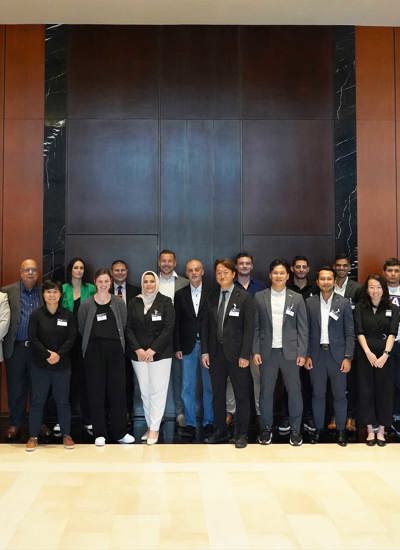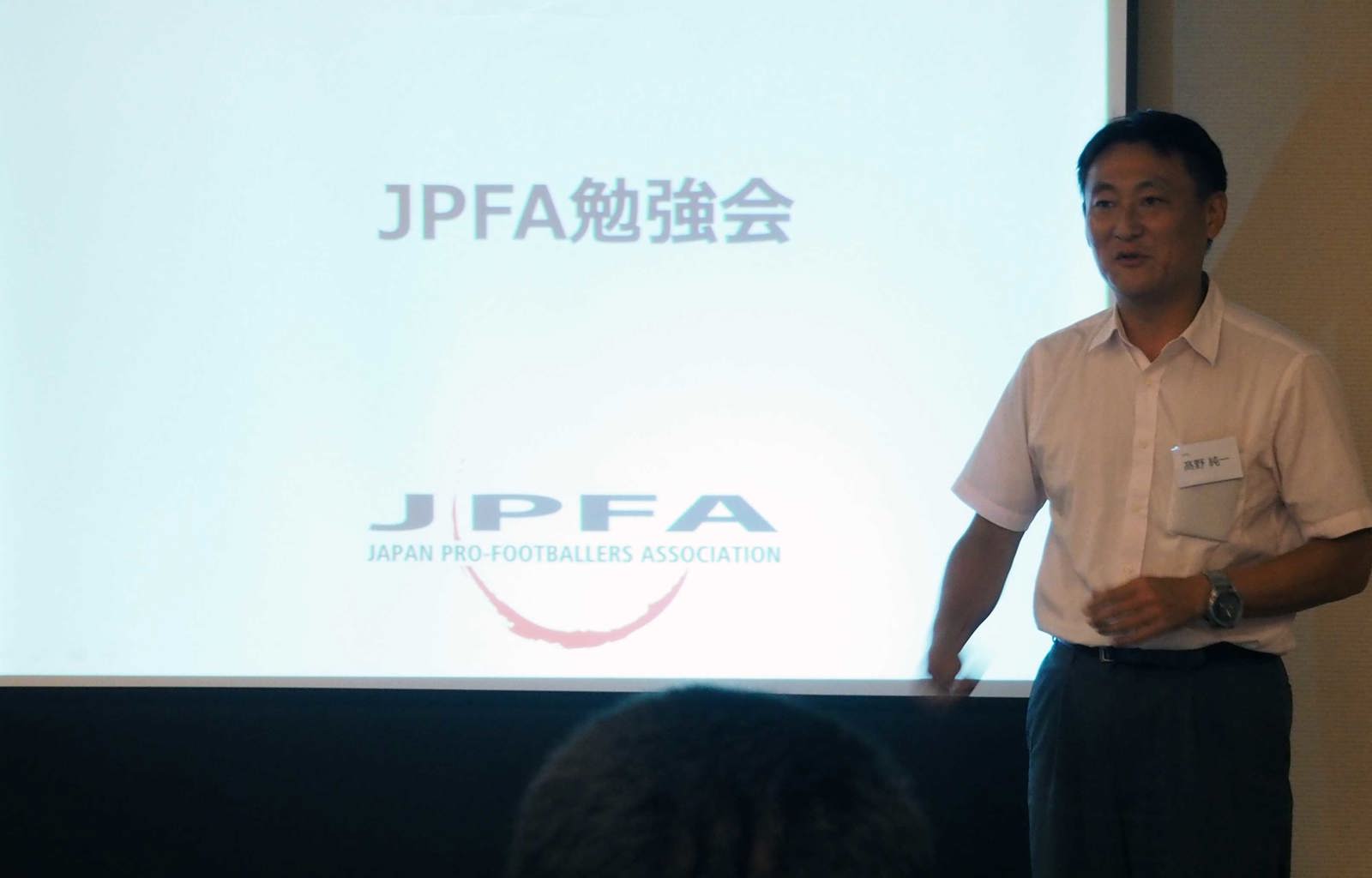
People of the Union puts the spotlight on individuals across FIFPRO’s member associations who are dedicated to improving the wellbeing of professional footballers in their country.
Junichi Takano, the Secretary General of the Japan Pro-Footballers Association (JPFA), talks about his work with the union, his experiences in football and what motivates him daily.
Tell us about yourself, what is your current role, and what is your background?
I joined the union in 2002, right after the World Cup, which was co-hosted by Japan. Before that, I worked as a press officer and team manager for two clubs, which had players from various European countries. I was influenced by them; for them, it was all about winning.
The JPFA was established in 1996, but in the early years the union’s role wasn’t clear to players. As a team manager, I attended the union's dressing room visits and noticed that not a lot of players understood the benefits of the collective. I thought that I could work for the union and improve their communication with players, as this was one of my strong points.
What do you most enjoy about the work you do at the union?
Making players happy. I am the Secretary General and I have to deal with the whole organisation. In the early days, but also still now, I find communicating with young players and educating them very interesting, especially when I can help them socially.
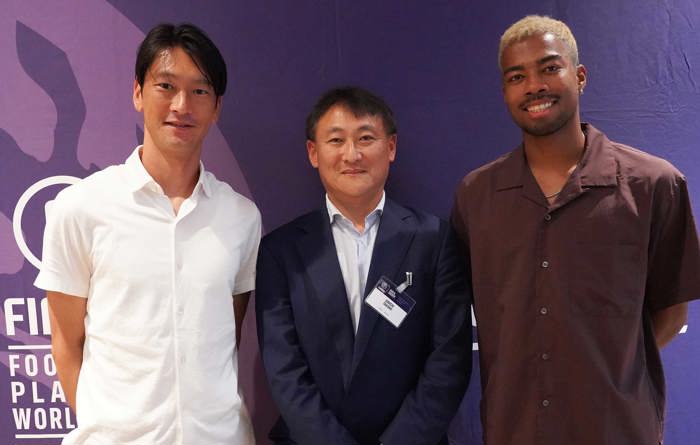
What issue affecting player welfare are you most passionate about?
Sharing knowledge about finances, taxes, savings, investments. Many players don’t know how to deal with money, or about the implications of our tax and pension system. I try to teach them this kind of basic knowledge, and want them to be prepared after their playing career is over. Most of them won’t earn as much to be financially independent. I want them to be happy in the future, so I am trying to make them aware how to spend their money wisely.
Can you share one of your proudest moments or achievements working as a union representative?
Japan didn’t have a free transfer system, as they had in Europe after the Bosman ruling, and players never had the possibility to go to another club to get more money. This changed in 2009 when, with help from FIFPRO and then Secretary General Theo van Seggelen, we managed to abolish our domestic system. This was one of the best moments in the history of our union.
It was very difficult, especially because we didn't have a good relationship with the J-League at the time. In the first couple of years of our existence, we didn’t have enough players to create leverage. But we strengthened our organisation, increased our membership, and collaborated with quality lawyers and Theo, and that proved to be successful. After we abolished the old system, the number of transfers multiplied five to six times.
Theo van Seggelen steps down as Director of FIFPRO Holding
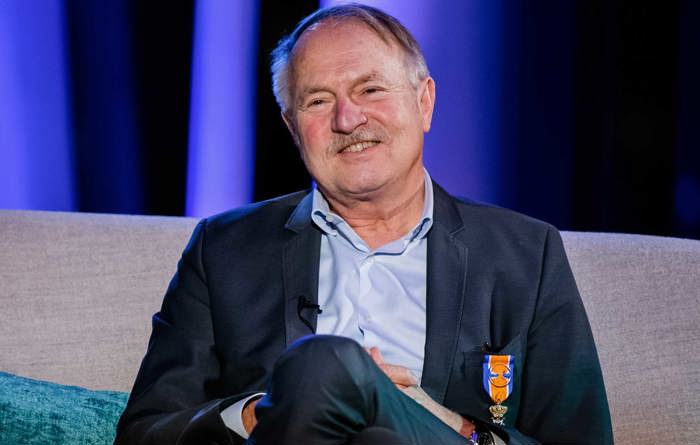
What is your favourite football memory to date?
Japan qualifying for the men’s World Cup for the first time at France 1998. Four years before, we narrowly missed out, as Iraq equalised in the 90th minute of our final match. We ended third on goal difference, while only the first two countries qualified.
We desperately wanted to qualify for the 1998 World Cup; we were going to host the 2002 World Cup and we didn't want to be the first country to host it without having qualified for a previous edition. We qualified at the last moment. We had a play-off match against Iran at a neutral venue in Malaysia. After 90 minutes the score was 2-2, so we went into overtime. In those days, we had the golden goal rule, meaning that the team that scored in overtime would win. And in the 118th minute, Masayuki Okano tapped in a rebound.
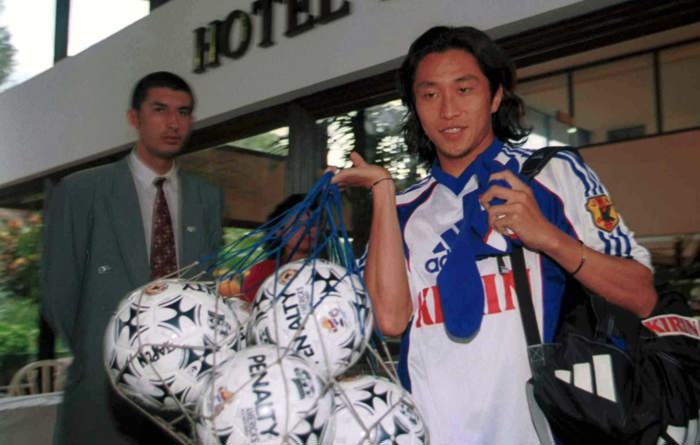
Who is your favourite football player ever and why?
I have two: Gianfranco Zola and Giuseppe Bergomi. Bergomi was only 18-years-old when he won the 1982 World Cup with Italy. Even though he was a teenager, he had this image of a tough defender because of his moustache and curly hair. I was also a teenager back then, and I wanted to look as tough as him.
Looking at skill, Gianfranco Zola was my favourite player. His free-kicks were brilliant. I still don't understand why he didn't play more at the 1994 World Cup in the USA. Roberto Baggio was tremendous, no doubt, but during that final between Italy and Brazil, Zola should have appeared; maybe he could have scored a free-kick to help Italy win the World Cup.
What motivates you daily?
Football in Japan is not as popular as in Europe. Baseball is far more popular. Everyday Shohei Ohtani, the world’s highest-paid baseball player, is big news in our country. Football almost never makes headlines. There are so many Japanese footballers in Europe now, but nobody knows. We have to change this culture in Japan. We must advertise more, invest more, raise the quality of our game. This industry must be bigger and generate more money. That is what is motivating me.

